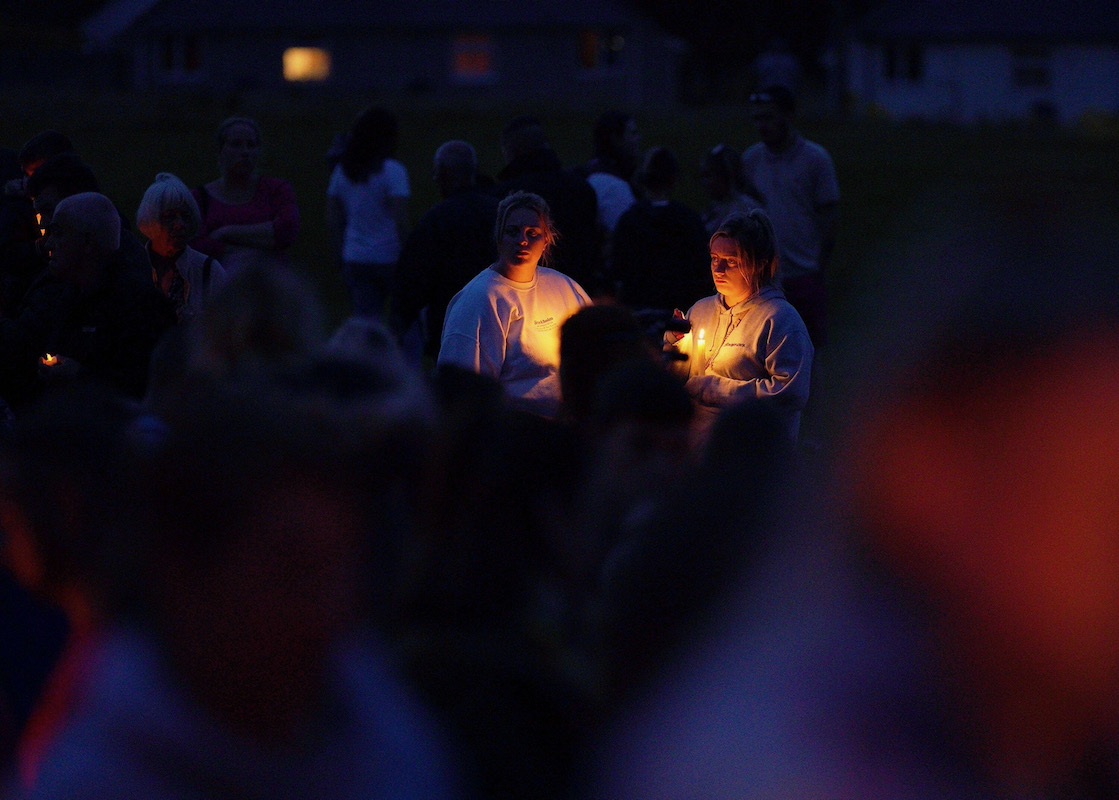The Glorious Twelfth (always a rather inglorious date in my estimation) was even more grizzly than usual this year because that afternoon, in the quiet backstreets of Plymouth, in the space of twelve minutes a lone male killed not a brace of grouse but five people, wounding two more and then turning his shotgun on himself.
His first victim was his own mother, followed by a passer-by and his three-year-old daughter, a 59-year-old man and a 66 year-old woman, with a 53-year-old woman and her adult son also shot and injured. Tragedy piled on tragedy – the perpetrator himself tragic, a troubled young man whose weapon had previously been seized by the police because of concerns about his mental health, before fatefully – and fatally – being returned just weeks before his shooting spree.
What struck me in reports of the carnage was the fact that he was influenced by “Incel” ideology. All I knew about “Incels” at that time was the etymology of their self-description, which is a shortening of “Involuntary Celibate”. But it was the depth of anger felt by these men (The vast majority of Incels are male) which was disturbing. It seems that in the echo-chamber of online chatrooms Incel ideology has become a labyrinth of self-reinforcing conspiracy theories and personal grudges; these latter caused by sexual rejection, other feelings of inadequacy and an overall sense of being one of the left-behind. The Plymouth gunman described himself as “beaten down and defeated by life” in one of the rambling YouTube videos he posted in the months before he became a killer.
Unfortunately, much of this toxic worldview focuses on hatred of women in general and feminism in particular, although unsurprisingly the hostility often broadens into a generalised misanthropy and racism, often with antisemitic elements. Incels apparently regard themselves as sexually entitled, although their self-description paradoxically involves admission of a deep vulnerability, because entitlement doesn”t seem to get them very far in the bedroom.
Inceldom, we might conclude, is just one more expression of the psychic damage which contemporary society inflicts on the non-photogenic and the unhuggable, through its penchant for glossy success and celebrity – even when the beautiful people” that they envy are as artificial as Botox, Photoshop and the carefully “curated” online lives of “Influencers”.
However, members of a Church which has both publicly valued and, alas, privately betrayed celibacy for the best part of two millennia ought to sit up and take note. What is the difference between ecclesiastical “compulsory celibacy” and “involuntary celibacy” – now identified by police agencies as a terrorist threat? And what are the ideological motivations and psychological dynamics of the former?
To begin with the positive, the very fact that non-believers should be using the term, “celibacy” – which, in my mind, has always been associated with a religious vow and a conscious decision, rather than the mere fact of not being sexually active – is itself notable. On this reckoning, there ’s a lot more “celibacy” out there than we might have imagined. As life-expectancy lengthens the amount of this “celibacy” – the involuntary solitude of the separated, widowed and bereaved – rises with a sad inevitability. And as serial monogamy becomes the more normal path through young adulthood, the gaps in people ’s relationship histories are likewise prone to lengthen, even with the help of Tinder/Grindr and quite apart from any moral restraints on their behaviour.
Might our Catholic tradition of celibacy have some words of wisdom to offer to the unvowed, involuntary and temporary “celibacy” of the unattached? Could we offer some humble insights into the “how to” of fruitful solitude? I think we might – provided we “voluntary” celibates have done our soul-work. I was struck a few years ago by these lines in an article by Brendan Geary (‘Celibacy and Intimacy’, in E. Conway (ed.) Priesthood Today: Ministry in a Changing Church. Dublin. Veritas, 2013, 234-244): “If a priest comes to see his celibacy as a deprivation, it will be difficult to find meaning in this commitment.” To continue beyond that roadblock, he suggests, a priest must somehow rekindle a sense of priestly vocation that requires celibacy – perhaps through “a new spiritual experience, like an awakening, ‘consolation’ or conversion.”
It is all fine and dandy – and no doubt necessary – for us to debate the merits of compulsory celibacy, but I am sure that it is not possible to live vocational celibacy fruitfully as an imposition for long. Somehow it has to be befriended, owned as opportunity as well as tolerated as a burden – and that in a culture which regards it as ridiculous, suspect or downright perverse. Attempts by celibates to draw parallels between matrimonial vows and the promises made at ordination are likely to founder on clerical tendencies to romanticise the married state, but the two have this in common: that they need to be understood covenantally. That is not simply about embracing the unknown future (the “for better or worse” clause of the Wedding Service) but far more about relying on grace, God ’s fidelity in the face of our flakiness.
The alternative is a resentful, hurt and angry life, which brings me back to the Incel phenomenon. Fortunately, you don’t hear too many stories of parish clergy becoming physically violent, but you do hear quite a lot of stories of clerical depression, as well as (thankfully rare) accounts of inappropriate expressions of anger, bullying or abuse of power and occasional whispered suggestions that particular clergy have “a problem with women”.
Moreover, we must now digest the horror stories told to the Independent Inquiry Into Child Sexual Abuse. That abuse was often perpetrated by men whose celibacy was decidedly involuntary, men formed in a time when psycho-sexual development and integration were little understood and even less attended to. Moreover, back in the day, to be ordained was (literally and metaphorically) to be “entitled” – even if that entitlement was not meant to extend to other people ’s bedrooms. So it ’s still worth asking: Does the Catholic Church have its own Incel problem?
Fr Rob Esdaile is Parish Priest of Our Lady Of Lourdes, Thames Ditton, Surrey



 Loading ...
Loading ...
What do you think?
You can post as a subscriber user ...
User comments (0)